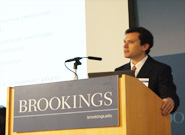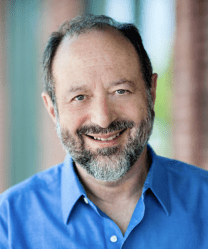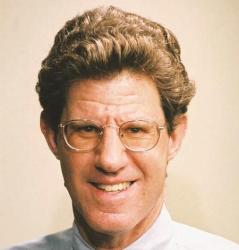

9:00 am EST - 5:00 pm EST
Past Event
9:00 am - 5:00 pm EST
1775 Massachusetts Ave., NW
Washington, DC
Abstract ideas are not patentable, but what are abstract ideas – and how can judges draw a line around them? Ten years ago, the Federal Circuit’s State Street Bank decision appeared to make any kind of business process or software patentable. In October, the United States Court of Appeals for the Federal Circuit decided in the Bilski ruling that a process must involve a physical transformation or be tied to a specific machine to be patentable. The Bilski decision appears to put an end to pure business method patents. It is likely to call into question a number of patents that claim software but do not tie the software to a machine or physical transformation.
Meanwhile, the issue has been resurrected in Europe and India. Three years after the European Parliament rejected a proposed directive after extraordinarily contentious debate, the European Patent Office (EPO) President has asked an appeals panel to determine where and how the line should be drawn on computer programs. The United Kingdom Intellectual Property Office has announced an economic study of software patents to provide input to the EPO. There is vigorous debate in India centered on patent office interpretation of recent legislation.
This conference, co-sponsored by the Brookings Institution, the Computer & Communications Industry Association and Duke University School of Law, looked at the problem of abstract patents from both economic and legal perspectives. How well do abstract patents work? What problems do they create? Can we do better than the standard in Bilski?
Panels:
Introduction and Welcome: Martin Baily (Brookings Institution)
Economic Perspectives
Patents on abstract subject matter – business methods, software, diagnostic information – remain far more controversial than patents in more traditional areas of technology. Since the goal of the patent system is promote innovation and economic development, is this persistent unease susceptible to economic analysis? Recent research suggests that “fuzzy boundaries” limit the ability of abstract patents to serve effectively as property rights and that this is associated with lower benefits and higher costs. Other distinguishing factors may include R&D costs, technological risk, alternative means of appropriation, information costs, cumulative nature of innovation, and network effects – although these may vary according to the abstract nature of the subject matter. What are the economics implications of requiring a physical transformation or a limitation to a particular machine under the Bilski standard? What are the costs and benefits of drawing the line in other ways – including the cost of enforcing the line against gaming? Is this line-drawing problem inherently less tractable than other line-drawing problems?
Arti Rai (Duke University), chair
Peter Menell (University of California, Berkeley)
Read background paper »
Robert Hunt (Federal Reserve Bank of Philadelphia)
Read background paper »
Ben Klemens (Brookings Institution)
Read background paper »
Iain Cockburn (Boston University)
Entry, Exit, and Patenting in the Software Industry »
Patents, Thickets and the Financing of Early-Stage Firms: Evidence from the Software Industry »
Patents and the Survival of Internet-related IPOs »
James Bessen (Boston University)
Read book chapter ; View Presentation Slides
Legal Perspectives
While the US Congress has never debated the limits of patent eligibility, Europe recently spent several years embroiled in debate before abandoning a proposed directive on the subject. The U.S. Supreme Court has not decided a case on subject matter eligibility for nearly 30 years, and after agreeing to hear Labcorp v Metabolite three years ago, it made the unusual decision of deciding not to decide. However, lower courts must draw lines in cases before them. Some observers have suggested that the challenge of circumscribing patent-eligible subject matter is so difficult and susceptible to gaming that the effort should be abandoned. But would that merely move the problem to another level and/or place additional burdens on other criteria that have been difficult to apply to abstract subject matter? Is a fuzzy line against abstraction simply another aspect of indeterminacy in the patent system? By abjuring categories and focusing on physical transformation and particularity, the Bilski decision seems to tackle the problem head-on while resurrecting familiar language from Supreme Court precedent? Can this approach succeed? Is there a better alternative?
Brian Kahin (CCIA and University of Michigan), chair
Read amicus brief »
David Kappos (IBM)
Read background paper »
Rochelle Dreyfuss (New York University)
Robert Armitage (Eli Lilly)
Read amicus brief I ; Read amicus brief II ; View presentation slides
John Duffy (George Washington University)
Read amicus brief »
Josh Sarnoff (American University)
Read amicus brief ; Read discussion draft
Independent Invention and Inadvertent Infringement
Patent infringement is based on strict liability, and the fact that an infringer came up with the same invention independently is no defense. Yet recent research suggests that patent infringement cases rarely involve actual copying, especially in fields associated with abstract subject matter. At the same time, the apparent frequency of inadvertent infringement is a driving force behind patent reform, limitations on patentable subject matter, and/or raising the basic standard of invention (nonobviousness). Independent creation is a defense in copyright, which may help explain the broader consensus behind copyright for software. What are the benefits and costs of different solutions to the inadvertent infringement problem in patents?
Clifford Winston (Brookings Institution), chair
Suzanne Scotchmer (University of California, Berkeley)
Read background paper »
Christopher Cotropia (University of Richmond)
Read background paper »
Samson Vermont (George Mason University)
Read background paper »
Emery Simon (Business Software Alliance)
Roundtable
Ben Klemens (Brookings Institution), chair
John Squires (Goldman Sachs)
Tim Lee (Princeton University and Cato Institute)
Joe Matal (Office of Senator Kyl)
Jamie Love (Knowledge Ecology International)
Wayne Sobon (Accenture)
Read amicus brief »
Rob Tiller (Red Hat)
Read amicus brief »
Konstantinos Karachalios (European Patent Office)
Statement ; Scenarios for the future project
Ray Chen (USPTO)
 |
 |
|
| Martin Baily giving introductory remarks. | Ben Klemens speaking on economic perspectives. |



Sarah A. Binder
July 8, 2025

E.J. Dionne, Jr.
July 3, 2025

Nicol Turner Lee, Tonantzin Carmona
July 1, 2025